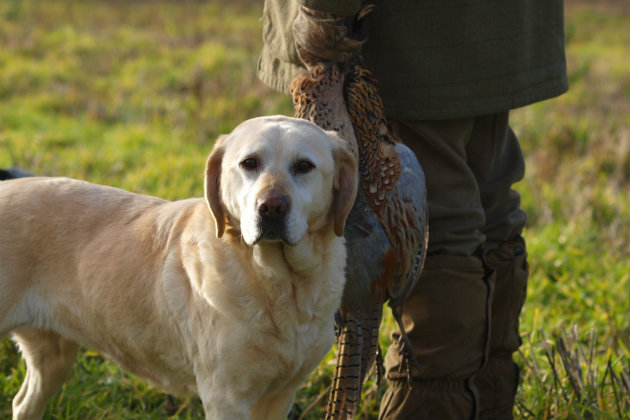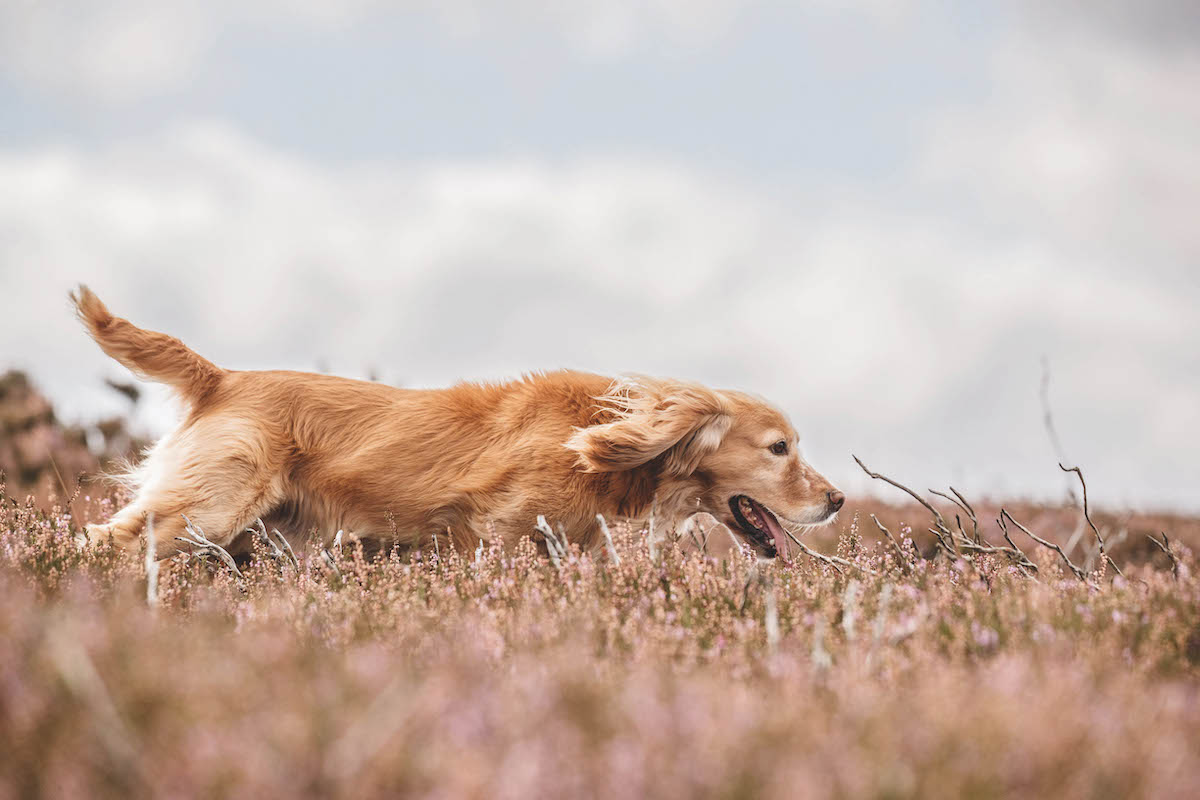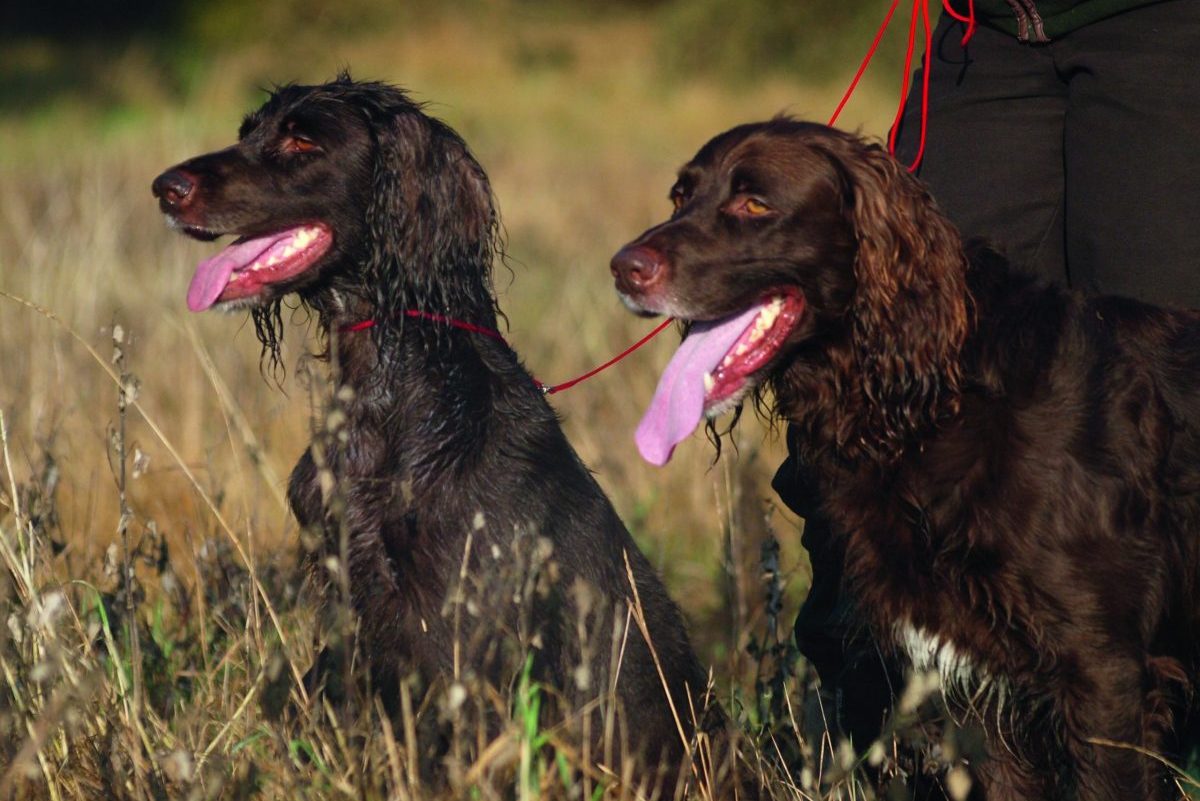Giving your gundog a comfortable retirement
You might think your gundog will carry on working for ever, but they all deserve a comfortable retirement, says David Tomlinson

Always be aware of the risk of dog theft
One of the most frustrating things about good gundogs is that their working lives are so short.
A dog is typically three or four years old when it matures into the best you have ever had, but five or six years later you realise that his working life is approaching its end. I’ve met old dogs that have worked until they were 12 or 13, but at this age it is seldom more than a retirement job, picking-up on a couple of drives or perhaps managing half-an-hour’s hedgerow hunting.
I’m sure it is possible to prolong a dog’s working life by keeping it keen and active during the close season, perhaps giving it a variety of retrieves on its walks, as well as paying attention to its diet to ensure that it is as fit as possible for a dog of its age. But whatever you do, time invariably catches up.
Retiring old dogs
Many old dogs have to be retired because of deafness, though they are fit in every other respect. Deaf dogs so easily become lost, and there can be few of us who haven’t seen an old veteran, bird in its mouth, uncertain of where its master is. Most dogs start to suffer some hearing loss from about 10 or 11 and many are completely deaf by 13.
Cataracts in dogs: causes of cloudiness
I’m worried for my gundog’s health! I have an elderly, but fit, Labrador and I am concerned that he may…
Can you prevent arthritis in dogs?
Q: Is there anything that can be done to delay or prevent the onset of arthritis in older dogs? Controlling…
Do dogs get dementia?
A recent newspaper report suggested that a third of dogs develop some sort of cognitive decline from the age of eight, and two-thirds…
Hearing aids for dogs
I’ve never met a dog with a hearing aid but you won’t be surprised to learn that such things do exist, though prices start at more than £2,000. I did a little research on this, and discovered that, “getting a dog to wear a hearing aid and then teaching him to interpret the sounds and to relearn their meanings requires a great deal of constant and consistent habituation and training. You do not just fit the hearing aids and resume your life as it was before.” It didn’t surprise me.
I’ve always wondered whether working gundogs are more prone to deafness than animals that never come into contact with the sound of gunfire. I suspect they must be.

Quincey, Sue Knight’s retired Labrador, has more than earned his keep and still enjoys life
My thoughts on gundog retirement were prompted by an email from reader Sue Knight, who asked me whether I’d ever written an article on the subject. Surprisingly, I haven’t until now. Sue told me about her black Labrador, Quincey, who will be 12 next year.
“We retired him at the end of last season as he started to mouth or drop birds, which is unacceptable on the shooting field,” she wrote. “However, I strongly believe in keeping retired dogs active. Quincey is exercised twice a day with Drummer, our six-year-old Labrador, and is still keen to retrieve dummies or tennis balls. I also do sit, stays and recalls every day to keep him guessing and fixed on me. His hearing may now be selective to voice, but he always responds to the whistle and a treat.
“There is one shoot we know well… where Drummer now picks-up. Here we can safely let the old boy have a run between drives. On a recent shoot day he was so proud to locate a lost bird that none of the other dogs had managed to find. As Quincey has twice taken me into the main ring at Crufts for the finals of Gamekeepers’ classes, I’m quite prepared to forgive him his idiosyncrasies.”
Sue added: “There are many fun things for a retired gundog to do. Most agility groups also include veteran classes, and these are a great way of keeping an older dog fit and supple and interested in life. Because gundogs have invariably received a good deal of obedience training, it’s not usually difficult to get them round an agility course, and it’s something that most dogs really seem to enjoy. Don’t forget that it’s good exercise for their human handler, too.”
Dogs, like humans, do best when they have a purpose in life, so keeping the old disciplines of walking to heel, doing a few memory retrieves, even the odd sit and stay, are all beneficial. Old dogs may not need much exercise but most still enjoy their walks, while I also think that it’s good to exercise them, if you can, on different ground. However, if you do, watch them carefully and keep them close, as this is when they can get lost.
Identity tags
It is particularly important that old dogs wear identity tags in case they wander off. OK, they may be microchipped, but a tag tells the finder who their owner is without having to go to a vet to find out.
My old spaniel Fleur was retired
at 12 after eating a bird that she was meant to retrieve. She went on to enjoy three happy years following
her retirement, remaining active to the very last day. She wore a goshawk bell on her collar, which was a great way of letting me know where she
was when I couldn’t see her.
If there is one thing we owe a dog that has served us well all its life, then it is a comfortable retirement.











